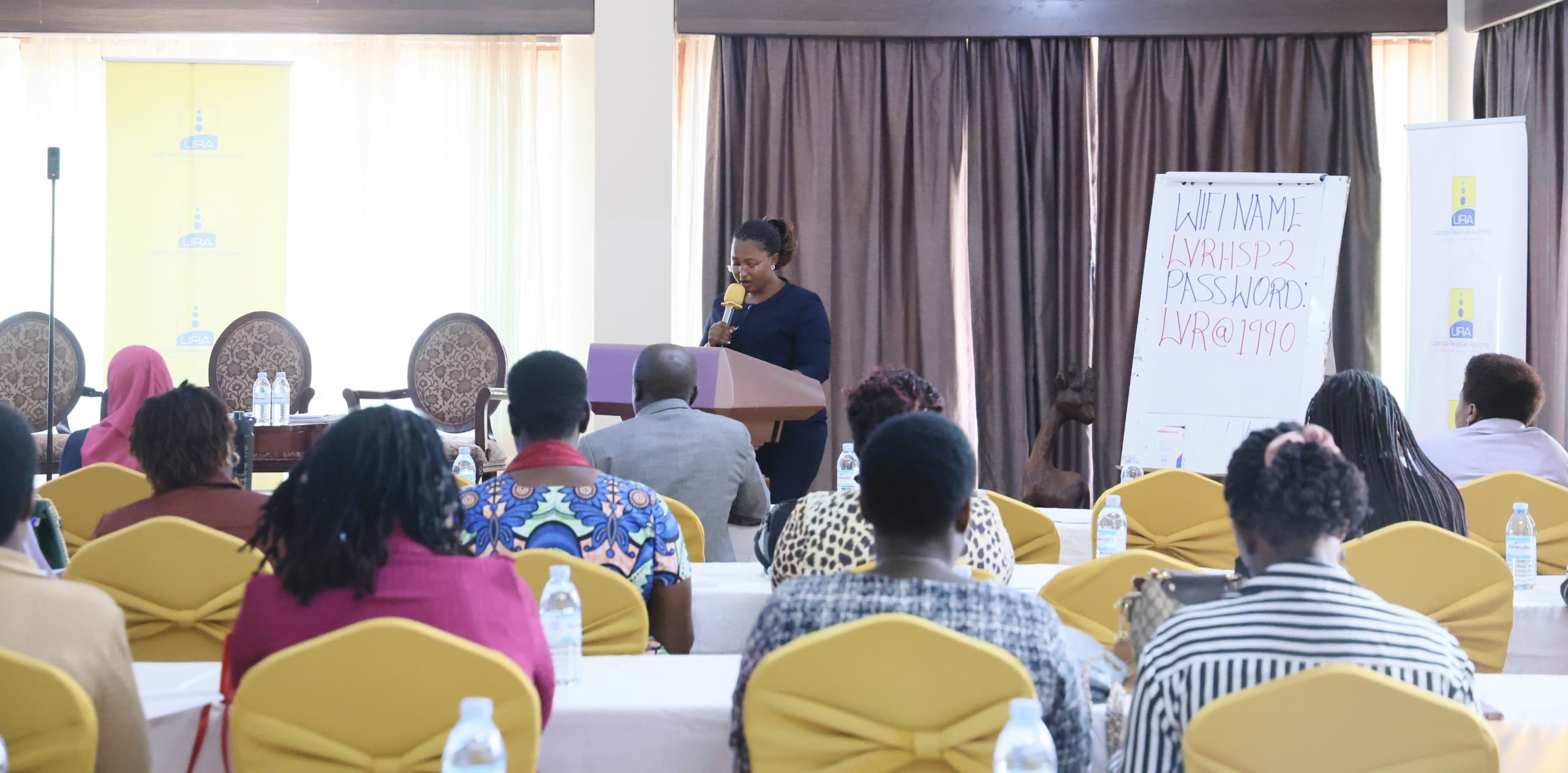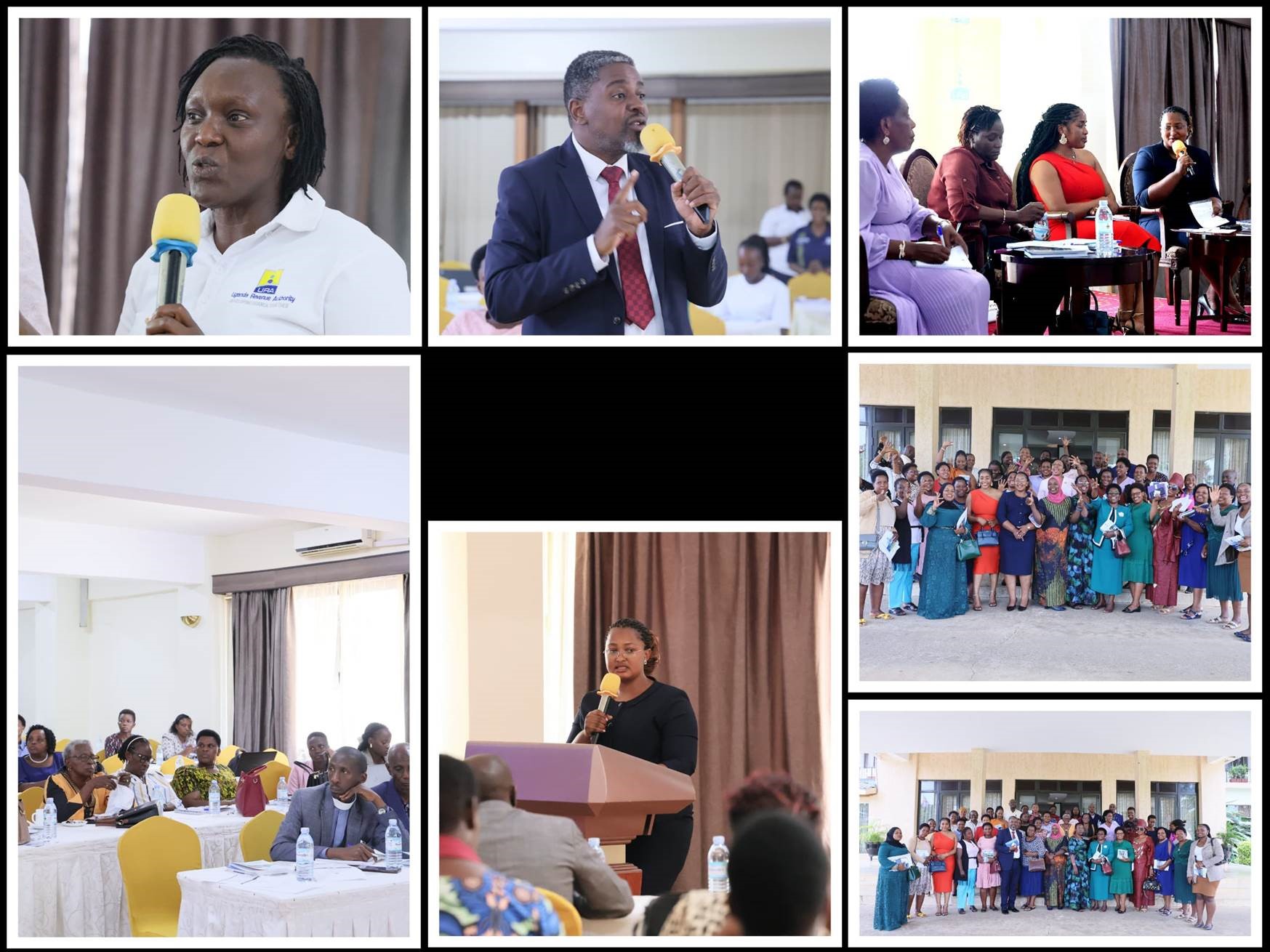
Women in business in Mbarara have expressed their appreciation for the Uganda Revenue Authority (URA) and its ongoing efforts to facilitate business growth while promoting tax compliance. The positive remarks came during the URA Women Conference held at Lake View Resort Mbarara.
Speaking at the event the Ag. Assistant Commissioner of Public and Corporate Affairs, Robert Kalumba, highlighted that URA is dedicated to recognizing and supporting women entrepreneurs.
“URA is celebrating the role of women in revenue mobilization, and we remain committed to offering support to ensure their businesses thrive,” said Kalumba.
Dr. Alice Tumwesigye, the Principal of Uganda Christian University Bishop Barham University College, praised URA for its tax collection efforts, emphasizing the importance of taxes in the development of the country.
“The institution I head cannot survive without essential services like safe water, electricity, and good roads. The importance of taxes is clear — for example, what used to take four hours to travel from Kabale to Mbarara now takes just two hours. This is a remarkable improvement that we are grateful for,” she explained. Dr. Tumwesigye also urged the government to consider reducing the Pay As You Earn (PAYE) tax to motivate salaried workers.
Jancy Kahard, a clothing entrepreneur, also commended URA’s responsiveness and customer-friendly approach.
“I pay my taxes on time, and I appreciate how the URA staff in Mbarara are always ready to assist and educate us about the importance of tax compliance,” she said.
Kahard particularly acknowledged the convenience brought about by innovations such as the ability to pay taxes from home or the office.
Mrs. Peace Musinguzi, a stationer at Dove Care, voiced her appreciation for the Electronic Fiscal Receipting and Invoicing System (EFRIS), which she said has made her tax-related tasks more manageable. However, she raised concerns that not all traders are registered on EFRIS, which she believes affects competitiveness in the market.
Other concerns raised during the discussion included issues related to default assessments and occasional impoliteness from URA staff.
In response, Gloria Twinomugisha Akatuhurira, Ag. Manager of Litigation in the Legal Services and Board Affairs at URA, reiterated the importance of tax compliance for national development.
“It is essential for businesses across the country to pay their fair share of taxes. URA is here to ensure that taxes are collected for the benefit of our country,” she said.
A key takeaway from Akatuhurira’s presentation was the process for taxpayers to follow if they feel dissatisfied with a tax assessment.
“If you believe an assessment is incorrect, you have 45 days to file an objection. After that, URA has 90 days to address the issue, and if necessary, you can appeal the decision,” she explained.
She encouraged taxpayers to use the alternative dispute resolution mechanisms available, with options for mediation during the process.
Esther Odora, the Supervisor planning in Domestic taxes provided clarity on the self-assessment regime currently in place at URA.
She emphasized the importance of accurate record-keeping and timely tax filing to avoid default assessments.
“Taxpayers should ensure they declare their income properly, keep records, and file their returns on time. This will help avoid any challenges with the tax authority,” Odora advised.
Furthermore, Odora highlighted that URA is working towards ensuring that all eligible businesses are enrolled in EFRIS, aiming to uphold the principle of equity in taxation.
By Joshua Niyonshima






No Comments yet!